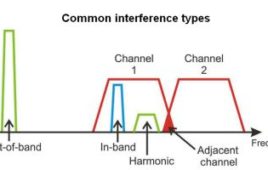Straight Path Communications has 12 months to offload its massive reserve of 28 GHz and 39 GHz spectrum or else face a huge fine under the terms of a Thursday settlement with the FCC.
Straight Path revealed in a press release it has agreed to pay $15 million over the next nine months and return 93 of its 39 GHz licenses to the FCC to settle the commission’s investigation into allegations of fraud brought by an anonymous source. The source alleged Straight Path obtained renewal of its 39 GHz licenses by claiming in a “substantial service” filing it had constructed systems that were never built. The FCC indicated an internal investigation by Straight Path determined the equipment had been deployed, but only for a short period of time at the original transmitter locations, and no equipment was present at the time of this investigation at the majority of the relevant locations.
As part of the settlement, the company also faces a deferred payment of $85 million unless it offloads all of its remaining licenses within 12 months. Straight Path must also hand over 20 percent of any sale proceeds to the commission. If it fails to announce a transaction within the next year, Straight Path will have to pay the $85 million fine or surrender all of its remaining licenses to the FCC.
“Squatting on spectrum licenses without any meaningful effort to put them to good use in a timely manner is fundamentally inconsistent with the public good,” Travis LeBlanc, chief of the FCC’s Enforcement Bureau, said. “Wireless spectrum is a scarce public resource. We expect every person or company that receives a spectrum license to put it to productive use.”
Even after returning some licenses to the government, Straight Path CEO Davidi Jonas noted the company still holds 735 millimeter wave licenses in the 28 GHz and 39 GHz bands and an average of 620 MHz in the top 30 U.S. markets. The company’s holdings represent about 95 percent of the commercially available 39 GHz spectrum licenses and a significant portion of available 28 GHz spectrum, including in key markets like New York and San Francisco, he reported.
“We are pleased that we were able to achieve a comprehensive settlement with the FCC,” Jonas said in a statement. “With this settlement, we have cleared the way for a review of strategic alternatives to maximize shareholder value. We look forward to continuing our role in the important development and deployment of 5G technology.”
Straight Path stock was up more than 50 percent Thursday morning on the news.
Its millimeter wave licenses make Straight Path a key player in the march to 5G, as the FCC recently opened up nearly 11 GHz of spectrum above 24 GHz for both licensed and unlicensed use. Those airwaves include 3.85 GHz of licensed spectrum from 27.5-28.35 GHz and 37-40 GHz, as well as 7 GHz of unlicensed spectrum from 64-71 GHz.
Tier-1 U.S. wireless carriers AT&T, T-Mobile and Verizon, as well as smaller carriers like C Spire, have all already begun 5G trials in the 28 GHz band, with the three larger carriers also testing in the 39 GHz band.
“Straight Path Communications’ spectrum is part of the bedrock for 5G and will play an important role in the development of this next-generation ecosystem, underscored by activities already underway by leading wireless carriers and equipment manufacturers in the U.S.,” Jonas commented.
Though many of the carriers are currently tied up in the FCC’s incentive auction, they will likely be interested in snapping up some of Straight Path’s holdings. Verizon in particular already acquired XO Communications’ fiber assets with an eye to lease its 28 GHz spectrum, and is launching a pre-commercial 5G trial on those airwaves in the first half of this year.
Filed Under: Wireless • 5G and more, Telecommunications (spectrums)




